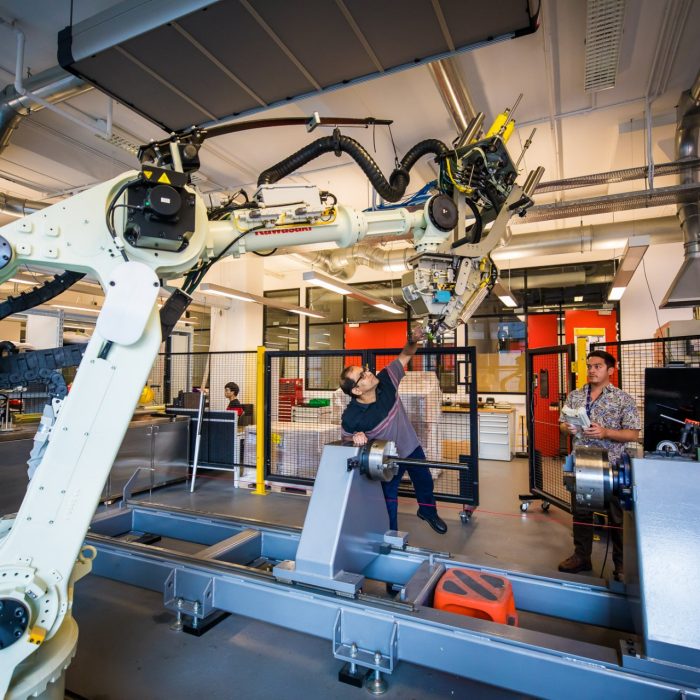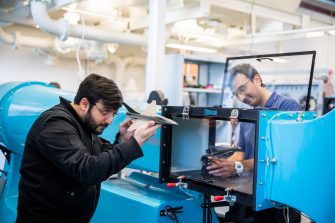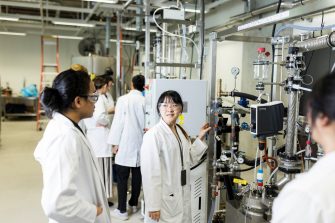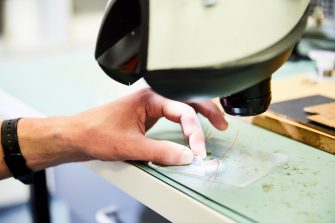Mechanical and Advanced Manufacturing Engineering

What is Mechanical and Advanced Manufacturing Engineering?
Mechanical and Advanced Manufacturing Engineering are intertwined at all points in the process. Everything we use on a daily basis is mechanically engineered, and at one time manufactured. Mechanical Engineers design, build, test and maintain machines, and Manufacturing Engineers take those ideas from concepts to the real-life machine or product.
Why study Mechanical and Advanced Manufacturing Engineering?
We’re moving into an era of rapid innovation, complex technology and greater sustainability. Mechanical and Manufacturing Engineers are vital for our future. You’ll apply scientific and engineering knowledge to machine-building and learn about:
- Designing and testing machines
- Understanding, analysing and improving complex industrial, manufacturing and infrastructure systems.
Why choose UNSW?
Stand out from other graduates in the market thanks to our leading-edge facilities, opportunities and industry connections. A $67 million refurbishment of the School of Mechanical and Manufacturing Engineering will take your education to even greater heights. We’re ranked #1 in Australia and =#46 globally for Mechanical, Aeronautical & Manufacturing Engineering (QS World University Rankings by Subject, 2025). We are known for our graduate employability, with UNSW awarded the Most Employable students for seven years in a row (Australian Financial Review (AFR) Top100 Future Leaders Awards, 2020–2026).
What about careers?
Want to land yourself in a career designing and building machines while contributing to the future of our planet? This is the field for you. Career opportunities are endless for Mechanical and Manufacturing Engineers – from developing motor vehicles, ships and aircraft, to working with robots, or marketing and selling machines you’re constructing. It’s the most employable field of engineering for a reason.
Career options include:
- Designing vehicles from cars to spacecraft
- Analysing acoustics for planning a building
- Designing a suitable power system
- Designing and developing next generation machines for aiding the disabled
- Designing and manufacturing industrial robots
- Using computer integration to automate a chemical manufacturing facility
- Developing processes to fabricate nano-devices
- Finding a cost-effect facility layout alternative for an aerospace manufacturing company
What are my study options?
-
Our specialised degree, the Bachelor of Engineering (Honours) (Mechanical Engineering) will provide you with strong skills and knowledge to enter the mechanical engineering industry.
We offer a range of engineering program specialisations that can be undertaken in our Engineers Australia accredited degrees. You can study Mechanical Engineering in the following undergraduate degrees/compatible degrees:
- Bachelor of Engineering (Honours) (Mechanical Engineering)
- Bachelor of Engineering (Honours) (Mechanical & Manufacturing Engineering)
Double degrees
- Bachelor of Engineering (Honours)/ Bachelor of Commerce
- Bachelor of Engineering (Honours)/ Bachelor of Science
- Bachelor of Engineering (Hons)/ Bachelor of Arts
- Bachelor of Engineering (Honours)/ Master of Biomedical Engineering
- Bachelor of Engineering (Honours)/ Bachelor of Computer Science
- Bachelor of Engineering (Honours)/ Bachelor of Engineering Science
-
Supercharge your Mechanical Engineering career with postgraduate study in:
- Master of Engineering (Mechanical Engineering)
- Master of Engineering Science (Mechanical and Advanced Manufacturing Engineering)
Graduate Certificates and Diplomas
-
A doctoral degree will allow you to specialise in a specific piece of research.



